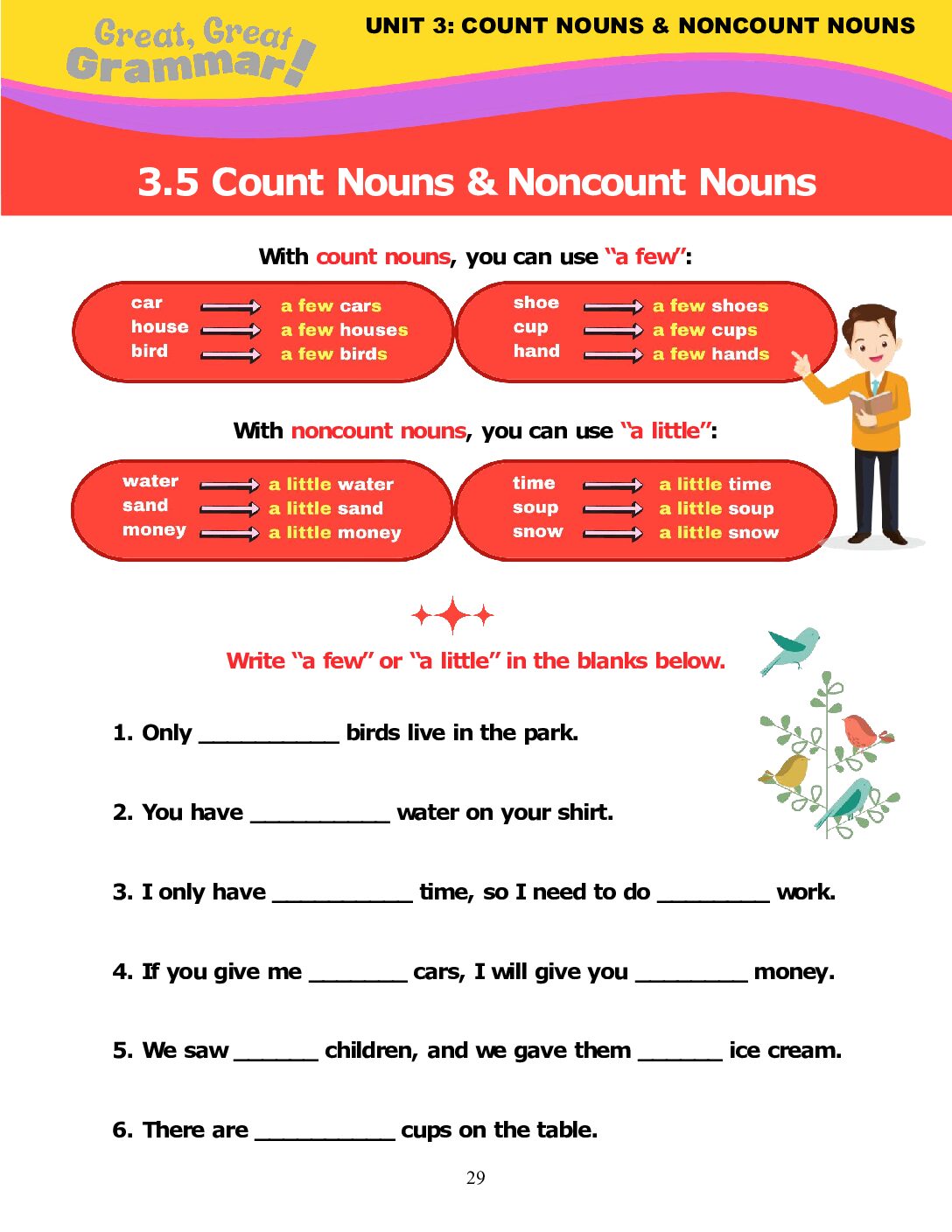In this ESL grammar lesson, students learn about using “a few” and “a little” with count/noncount nouns, followed by a short review worksheet.
Learning to express small quantities in English is essential for clear communication. “A few” and “a little” are quantifiers that help describe small amounts, but they are used differently depending on whether the noun is countable or uncountable. This beginner’s guide will explain how to use these quantifiers correctly, with clear examples and practice exercises to enhance your understanding.
ESL Grammar: Using “A Few” with Count Nouns
Count nouns refer to items that can be counted individually, such as “apples,” “books,” and “cars.” “A few” is used with plural count nouns to indicate a small number. Here are some examples:
- There are a few books on the shelf.
- She has a few friends in the city.
- I bought a few apples at the market.
ESL Grammar: Using “A Little” with Noncount Nouns
Noncount nouns refer to substances or concepts that cannot be counted individually, such as “water,” “money,” and “information.” “A little” is used with noncount nouns to indicate a small amount. Here are some examples:
- She needs a little time to finish her homework.
- He drank a little water after the run.
- We have a little information about the event.
This beginner-level English grammar lesson on count/noncount nouns with “a few” and “a little” is perfect for both online and in-person classes, offering diverse content to suit any learning environment. Explore this and many similar grammar lessons for all levels on our page of ESL grammar lessons.
This lesson is available for free download, and you can download many more English grammar lessons focusing on all different parts of speech (nouns, verbs, adjectives, adverbs and lots more!) in our comprehensive, beginner-level ESL grammar textbook Great, Great Grammar! (Book 1: Parts of Speech).

